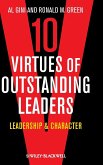Management Ethics is a highly accessible and concise introduction to issues and key problems in the area of management ethics. * Examines the obligations that managers have to their various stakeholders: employees, customers, shareholders, and the community * Looks at topics at the cutting edge of business ethics, including the ethics of supply chain management, as well as dealing with the press and non governmental agencies * Considers the concepts of sustainability and triple bottom line accounting * Includes chapters on stimulating the manager's moral imagination and promoting a unique theory of ethical leadership
"In a fresh approach to stakeholder analysis, Bowie andWerhane articulately and persuasively hone in on the unique ethicalobligations that guide manager-level decision-making. ManagementEthics delineates the competing pressures on managers andprovides them not only with insights but actual processes forensuring accountability for their decisions." LauraHartman, DePaul University
"Management Ethics is up-to-date, wide-ranging, andextremely well-informed. Written from a Kantian stakeholderperspective, it presents an excellent account of the fundamentalsof management ethics." George Brenkert, GeorgetownUniversity
"Bowie and Werhane combine their diverse experiences andknowledge to provide an excellent primer in management ethics. Theypresent the basics of managers' ethics and corporate socialresponsibility in a clear and compelling narrative chock-full ofcogent examples and core concepts." Thomas Dunfee, WhartonSchool, University of Pennsylvania
"Management Ethics is up-to-date, wide-ranging, andextremely well-informed. Written from a Kantian stakeholderperspective, it presents an excellent account of the fundamentalsof management ethics." George Brenkert, GeorgetownUniversity
"Bowie and Werhane combine their diverse experiences andknowledge to provide an excellent primer in management ethics. Theypresent the basics of managers' ethics and corporate socialresponsibility in a clear and compelling narrative chock-full ofcogent examples and core concepts." Thomas Dunfee, WhartonSchool, University of Pennsylvania









